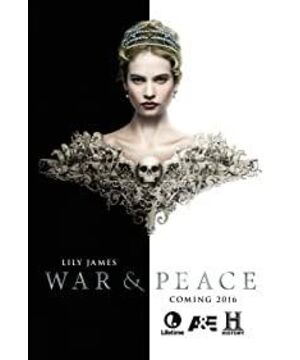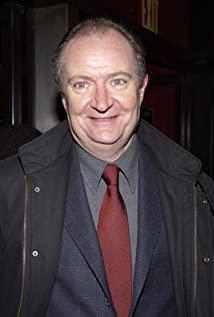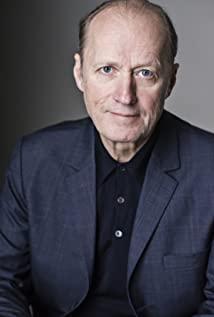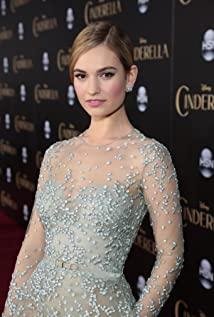When I was still in junior high school, I bought an abbreviated version of "War and Peace". Names in Russian literature are always difficult to remember. To this day, only the names of "Pierre" and "Andre" are left in the memory of the book, except for Napoleon and Kutuzov, the two real characters who existed. They are in the book, in fact, still outside the book.
I just saw the opening of the first episode of this show, and suddenly, some of the previous memories came back to life. Pierre, a seemingly incompetent, weak, but full of enlightened nobleman, inherited a large fortune. Andre, a rational, profound, and determined descendant of aristocracy, pursued glory, pursued merit, and died in war.
The sets in the episodes are gorgeous, the soundtracks are deep, and English is still a bit more mellow than Russian. For a film and television adapted from a well-recognized masterpiece, it is a success to be able to tell a story completely and smoothly, and I am not demanding to be able to see the depth, grandeur, and vastness from it.
Schopenhauer said that people will suffer when they cannot satisfy their desires, and they will be bored when their desires are satisfied; life is like a pendulum swinging between pain and boredom. This sentence is appropriate in the life of the nobles in "War and Peace". The lives of noble women seem to consist of balls, opera and romance, while the lives of noble men seem to consist of hooking up with women, drinking and war. That's the peace part. The men and women in it seem to be dazzling, unrestrained, immersed in small scarlet phantoms full of lust, greed, and ambiguity.
On the European continent, the anti-French alliance was divided and closed, and Napoleon was crowned emperor and dominated Europe. The violent social upheaval provoked since the beginning of the French Revolution has continued, and as Napoleon pointed out, revolutionary ideas are shaking the foundations of the old system. At the same time, Russia is like a vigilant bear, large and fat, ferocious and strong, but acne-prone. The Franco-Russian battle was both a battle for hegemony and a battle between the old and the new. The bitter cold in the Russian winter seemed to be God’s blessing to the Russians, and it was also like the wild and serious character of the Russian nation. When Napoleon's army set foot on Russian soil, it was destined to return in winter along the same route.
After all, "War and Peace" is a masterpiece like "A Dream of Red Mansions". In terms of structure, there are also some similarities, both of which describe the division and rise and fall of several noble families. However, the spiritual core between the two works is Far from it. Chinese classical works, the more they go to the end, the more tragic they are. The four famous works are all like this. The prosperity has come to an end, the hegemony has withered, the beauty has passed away, and the country remains the same. The spiritual world of Chinese literati in the old days was often Confucianism as the exterior, Taoism as the bone, and Buddhism as the interior. There is not only the ambition of "riding the long wind and breaking the waves of thousands of miles", but also the leisurely feeling of drinking wine, and the sadness of "one-hearted Chinese dream, eternal poetry". In the final scene of "War and Peace", Pierre married Natasha and Nicolas married Andre's sister. From the beginning to the end, it seems that the plot twists of the whole show are going in circles. In the dialogue between characters, one of the most frequently heard words is "forgive".
Forgive, can be understood as forgiveness, can also be understood as redemption. In the Christian worldview, each of us has original sin. Like the flaws in every character in it. Everyone is complex. The West wants people to repent at all times for their crimes. Isn't this the same as "keeping the principles of heaven and eliminating human desires"? The turning point in Pierre's life came when he met a Freemason. After that, he ignited the enthusiasm for a new life. This is somewhat of a portrait of Tolstoy himself. When the world has gone through such a long period of change that everyone is no longer in awe, there will always be a small group of people who go back to the source and try to reshape the spiritual world. And what Tolstoy himself meant was that he never thought of revolutionary means to transform society, but continued to seek the medicine of inner peace from religion.
Russia is a European country, but it is quite different from Western Europe. In modern history, the October Revolution overthrew Tsarist Russia and established the world's first socialist country. From the direct transition from feudalism to socialism, Russia did not have a process of democratization. Even though the original human rights and the Enlightenment thought of the separation of powers spread throughout Europe with the fire of the French Revolution, in Russia, it did not generate the power to shake the czarist rule. Until the outbreak of the October Revolution, although tsarism was buried, it was still another totalitarian rule. To this day, this is still the case in Russia, where Putin is in power. Although the ideology has changed, I am afraid that the shadow of the old system still remains in people's thinking.
Pierre and André in War and Peace have been exploring themselves from the very beginning. They also have a strong sense of patriotism. In this world, there is always someone to be profound. Forgive the world, save the heart. Sic transit Gloria mundi!
View more about War & Peace reviews











